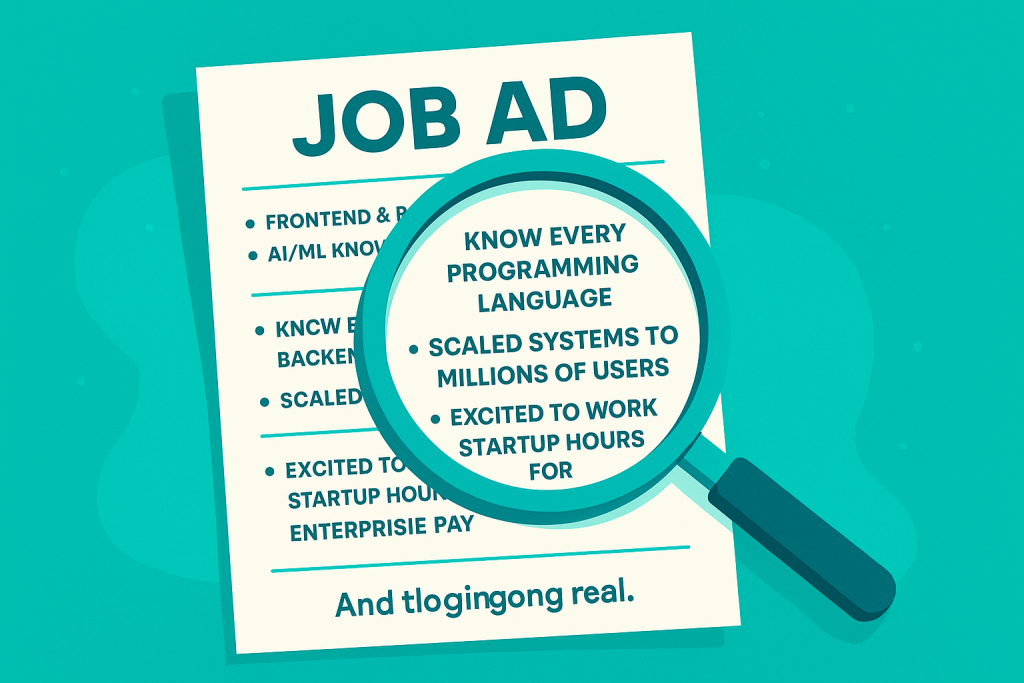Somewhere between the 9th interview round and the 14th must-have bullet point, a lot of companies quietly lose the people they were hoping to hire.
Not because there’s no talent.
But because they’re chasing someone who doesn’t exist: The perfect engineer.
What the “Perfect” Engineer Looks Like (on Paper)
- They know every language your stack touches—even the ones you’re planning to phase out.
- They’ve scaled systems from 0 to millions, led teams, and are still hands-on coders
- They love startups, but also want enterprise polish.
- They want to be challenged, but not too much.
- They’re local. Or remote. But definitely in your time zone.
- They’re affordable.
And they’re not real.
What Happens When You Search for This Person
- You write a job description that reads like three roles mashed into one
- You get flooded with mismatched applicants
- Your hiring team spends hours filtering, rejecting, and circling back
- You finally talk to someone great—and lose them to a faster, more focused company
Meanwhile, you think it’s a “talent shortage.” But what’s really happening is you’re filtering out everyone who might actually be great because you’re holding out for an ideal that doesn’t exist.
How It Feels on the Candidate Side
Let’s flip the script.
Imagine you’re a backend developer with 7 years of solid experience. You’ve worked in microservices, dabbled in DevOps, led some projects. You see a job post looking for exactly that—but also:
- Frontend expertise in React
- AI/ML “nice to have”
- Experience managing 12+ people
- Based in Warsaw, fluent in English and German
- Oh, and must be excited to work startup hours for enterprise pay
You’d skip it. And they do.

The Real Risk: Losing Good for the Sake of Perfect
We’ve seen it over and over:
Teams waiting for the “perfect fit” often miss out on good people—ones who’d do the job well and actually join.
Good hiring is about fit, potential, and real-world needs—not fantasy checklists.
And when companies shift that mindset, everything gets easier:
- Job posts attract the right kind of people
- Interviews get more focused
- Offers are accepted faster
- Teams stop burning out waiting for “the one”
So What Should You Look For?
Instead of chasing perfection, ask:
- What’s truly essential on day one?
- What can be learned on the job?
What kind of person succeeds on this team, not just in general?
Great engineers come in different shapes—and the best ones often aren’t perfect on paper.
They’re curious. Adaptable. Reliable.
And they’re out there—if you know how to look.
Where We Come In
At Meettal, we help tech teams get clear on what they actually need—and find people who match that.
Not resumes that check every box.
Not unicorns.
Just smart, capable humans who can build real things with you.


